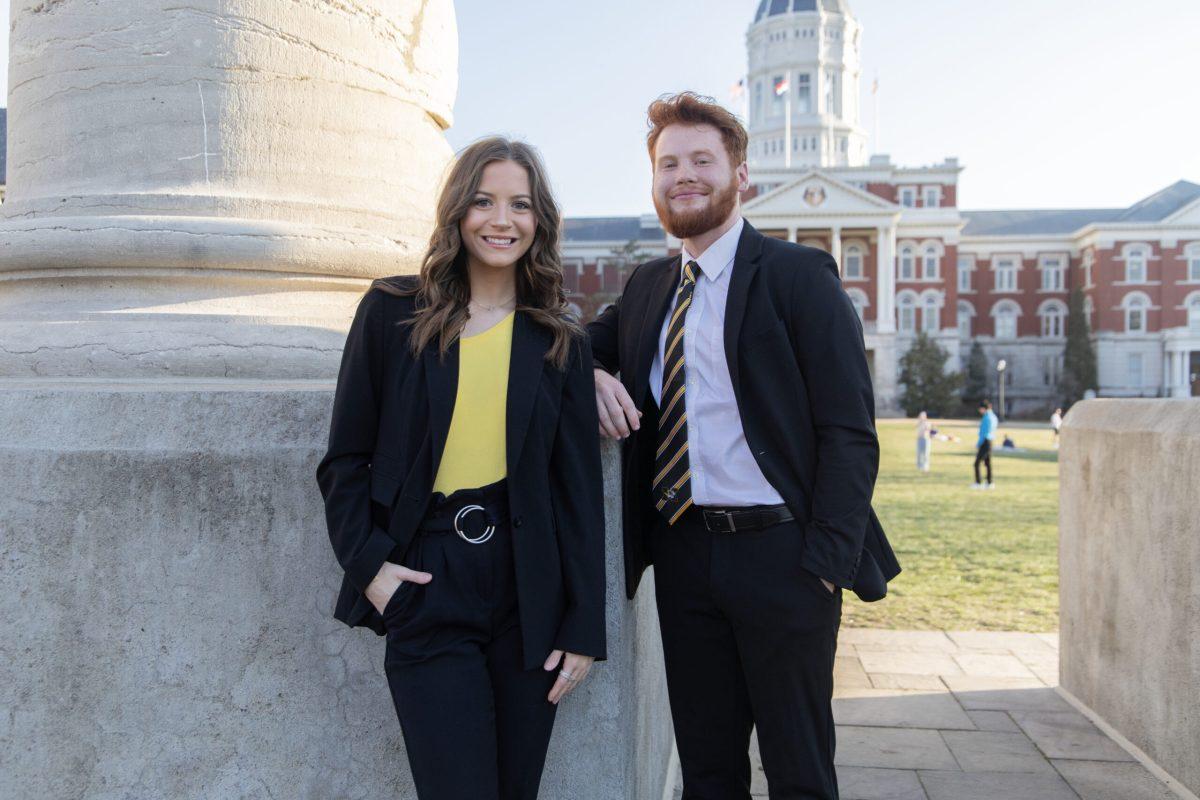I want to first start off by saying that the Missouri Students Association is an organization that I love dearly and that I put a significant amount of time into. I’ve been in MSA since the second week of my freshman year, and because of MSA, I’ve been afforded some amazing opportunities. But recently, MSA has been going in a direction that I just don’t think is right and not enough people are speaking out about it.
For an organization (and as representative of students), MSA sure has done a poor job promoting diversity. Diversity of ideas and thoughts is as equally important as any other aspect of diversity. And for a student government, it’s arguably the most important. But in recent weeks, MSA has taken some critical steps backward. Whether it’s the professional staff who work alongside MSA (and Senate Speaker Mckenzie Morris) requesting that senators silence their voices and not express a different opinion during full Senate, or it’s the seeming willingness of the majority of Senate to go along, to get along.
Because of this, MSA has failed us. Not enough members scrutinize, ask questions, consider facts or analyze the opposing sides to positions very often. Too many seem willing to jump on board with a popular idea and not think twice about it. MSA’s latest act that has failed us was the Board of Elections Commissioners presidential handbook. This is the document that governs MSA student body presidential elections. The handbook implemented some drastic changes. While I successfully fought hard to reverse some of the changes (allotted number of voting locations, procedures for flier approval and an increase in the number of debates) into the handbook, there were some changes where MSA simply didn’t push back hard enough, if at all.
Among those changes is the shortening of the election period. Perhaps the biggest disappointment is that Senate allowed discussion on the amount of signatures required to be on the ballot, but voted almost unanimously to prevent debate on the length of the campaign season. This is alarming because supporters argued that requiring more signatures would give candidates more interaction time with voters, yet no one seemed to think that a one-week extension of the campaign season would do so. Everyone who favored shortening the campaign season argued that the most recent MSA presidential election was too long and an intrusion into student lives.
While these are valid concerns, they aren’t applicable in this argument. The BEC handbook already has provisions that prevent intrusion into students’ lives. The two most notable provisions prevent candidates from campaigning in residence halls and also stipulate that candidates can only speak at Greek houses and campus organizations if invited. There are also rules in place to regulate where fliers can be posted and when and where candidates can interact with voters. The BEC (and its supporters) failed to show accurate proof that elections were burdensome to students. I strongly believe that this claim was imagined by the authors of the BEC handbook.
And unfortunately, far too many in MSA latched onto this idea without asking enough questions and challenging their argument. I mean, just think about it — for the past two years, the MSA presidential election timeframe has been cut by 42 percent and 57 percent, respectively. I can’t think of one other single thing in life where the importance of something is verbally stressed constantly, but less time is given to achieve the desired result.
The other major concern that I had with the BEC handbook was its process. The BEC handbook passed at the most recent full Senate was not passed by a single MSA Senate committee. The author (BEC Chairman David Wettroth) singlehandedly chose to make arbitrary alterations to the bill and the Senate Speaker, Mckenzie Morris, allowed him to bring a bill to the floor that had not passed through an MSA committee (which is required by the bylaws). Though a different version of the BEC handbook did pass through committees a few weeks ago, the one voted on and passed last Wednesday was not first passed in committees.
Too many in MSA have become content with not following the rules and not taking their duties seriously.
Because of these new election rules, candidates will have less time to have a public debate about their ideas. Unfortunately, the encouragement of public debate of ideas seemed to dwindle in importance as opposed to mimicking other SEC schools. Far too many times, those supporting the drastic, unnecessary changes in this year’s BEC handbook were too quick to say, “This is what other SEC schools do.” I, for one, think that MSA should look to lead, not mimic other SEC schools. We should be looking to add to the SEC, not simply copycat and mimic.
I’m the first person to admit that there is nothing wrong with adopting an already-proven strategy, but shortening the MSA presidential campaign period does not benefit Mizzou. Since when has “because they did it” ever been justification for anything? Monkey see monkey do seems to be the leadership style of many within MSA, as opposed to seeking effective, innovative ideas that pioneer the improvement and the, now stymied, growth of this organization.
Many seem to toe the line when it comes to saying that MSA elections are important and that MSA needs more student input, but few seem to take actions that match their rhetoric. Increased student involvement and participation means having informed, knowledgeable voters. But with more than 700 organizations, more than 20 hall governments, more than 50 Greek houses and more than 26,000 undergraduate students, how are candidates expected to engage voters, spread their ideas and increase student involvement in MSA with only three weeks of campaigning.
I’m beginning to think that those who advocate for increased student involvement don’t actually support it. Far too many people sided with Operations Chairman Ben Bolin that the election should be left up to word-of-mouth of MSA senators. For those who want MSA to decide the upcoming election, shortening the campaign season and limiting public debate about ideas certainly is the way to do it.
The MSA president oversees an organization with more than 300 people, an approximate $1.7 million budget, and has countless duties and responsibilities. Some of which include testifying in front of state legislatures in Jefferson City, meeting with Columbia’s mayor and working with campus (and UM System) officials to advance an agenda that benefits students.
There are far too many in MSA who don’t fully understand and grasp the vast capabilities and potential of this organization, so how can the general student be expected to make a wise decision about who to vote for in a matter of three weeks? With these changes to the BEC handbook, MSA has opted to tell students that MSA presidential elections are not important and that they should be viewed with a grain of salt.
MSA is surely in need of leadership. And, as I started out this piece saying, MSA is an organization that I truly love and the potential of things that we can accomplish is truly endless. Because of that, I have decided to take a stance and advocate for reform within MSA. My first step in this endeavor has already been completed. I have officially sought a Writ of Injunction from the MSA Student Court seeking to stop the Board of Elections Commission from holding senator elections this fall.
In an attempt to conceal MSA’s lack of regard for our bylaws, the current MSA bylaws (nor the rules of the Senate) aren’t uploaded to the MSA website, nor were they ever distributed to senators. And whenever procedure seems to be in question, everyone seems too content to run with a senator’s arbitrary interpretation of the bylaws without ever pulling out an updated copy of the bylaws.
I can only hope that more in MSA stand with me in saying that the rules must be followed and demanding that we expect better from ourselves.
Until I feel that MSA is making a concerted effort to improve and move us in the right direction, I will continue to submit weekly letters to the editor highlighting MSA’s shortcomings. It’s my duty as a senator and someone who cares deeply about this organization and the students that we represent to initiate a dialogue about the direction of this organization and our current state.
_— Taylor Major, senator, Missouri Students Association,_
[email protected]_











